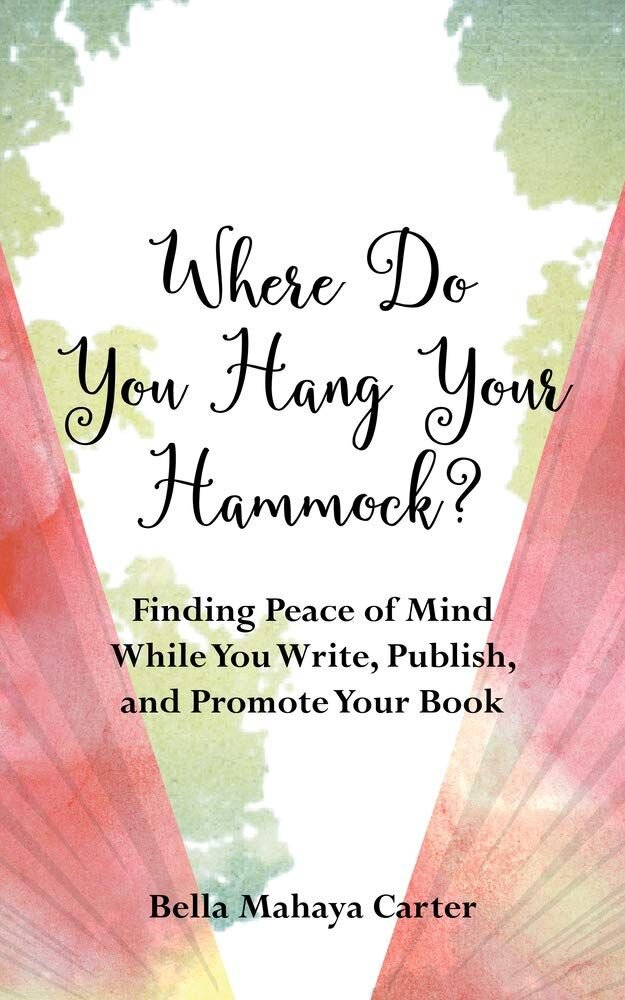by Bella Mahaya Carter,
Have you ever thought you can’t be a writer because you lack the “right” education? If so, think again.
I studied dance, literature, filmmaking, and spiritual psychology—not exactly a direct or obvious path to a writing life. But perhaps more than any other calling, diverse experiences lend themselves to writing.
One of my favorite clients published her first book at eighty, so it’s never too late.
Often our life paths make more sense when looking in the rearview mirror. Many of the changes in direction we take, what may feel like swerves in the road, or even obstacles or mistakes, upon reflection look more like divine course corrections. Life rarely moves in a straight line. It zigzags and circles.
Sometimes you can’t see the connections between where you’ve been and where you’re headed, or how one set of skills you have might apply to other areas in your life.
In my case, choreography and dance taught me about creating something from nothing. Open space was the blank page upon which I explored storytelling. I learned about narrative structures, phrasing, pauses, keeping time, the creation of shapes, and deep listening. I also learned how to receive what wanted to be expressed through me—that I am a vessel, a receiver, and a conduit for something larger than myself. As such, I learned the importance of not taking myself too seriously. My job, regardless of my creative medium, has been to honor inner creative impulses and act on them even when I feel afraid or insecure. I also honed my discipline and developed a deep respect for practice.
My first creative writing teacher, Jack Grapes, an actor, playwright, and poet, warned me that as a young performer transitioning to writing I should resist the temptation to perform in my new craft. “You don’t have to ‘put on’ or impress anyone,” he told me. I didn’t have to show up bigger than life on the page, the way I did on the stage. Writers observe life. There’s no need to project outward; the key is to take a deep dive inward.
That said, today’s writers wear many hats. We engage in public speaking, read work in public, interview fellow authors, and emcee events. These activities are easier for people accustomed to being in front of audiences.
I learned a lot from my time as a dancer and from my film school experiences, about being onstage and hosting large events. I learned, too, from being a screenwriting TA. I studied and taught classic dramatic structure, discovered the difference between a story and a sketch, learned how to tell a story in a visual way, and more.
Making films reinforced these skills, and taught me how to work collaboratively on creative projects. I also learned that the story is discovered not in the writing, but in the editing. This has been valuable as a writer, since writing involves so much rewriting. Writers need to patiently explore and listen as the story reveals itself.
My training in spiritual psychology taught me how to be gentler with myself, and others, to become a better listener and observer, and how to say “yes” to my dreams.
Your path to a writing life may feel like a circuitous one, or it may seem to make no sense at all, but anything that helps you flex your creative muscles will serve you well as a writer. Consider your innate skills, too, your personality traits. Are you organized? Do you enjoy breaking things down so they’re more easily understood? Do you think of yourself as a storyteller? Do you have the gift of gab? All of us have skills we can lean into when we come to the page, ready to tell a story—whether it’s a true story or a fictionalized one.
If you want to write, it’s never too late. Assume you know everything you need to know, that you’ve been sufficiently educated, that you carry within everything you need. Of course, we never stop learning, and writing is one of the best tools I know to facilitate growth. It’s certainly not the case that you need to earn an MFA in creative writing or have had any other formal training in order to start your dream project.
One of the most important things my education has taught me is to plow through obstacles erected by judgment, doubt, and fear. Release your expectations and show up for yourself and your creative work. Play. Be lighthearted. Be okay with not knowing what you’re doing or where (exactly) you’re going. Have two metaphorical stamps at the ready—“Permission Granted” and “I Don’t Know”—and use them often. Be free. Be bold. And keep saying “yes” to your dreams.
Bella Mahaya Carter is the author of Where Do You Hang Your Hammock?: Finding Peace of Mind While You Write, Publish, and Promote Your Book. She is a creative writing teacher, empowerment coach, and speaker, and author of an award-winning memoir, Raw: My Journey from Anxiety to Joy, and a collection of narrative poems, Secrets of My Sex. She has worked with hundreds of writers since 2008 and has degrees in literature, film, and spiritual psychology. Her poetry, essays, fiction, and interviews have appeared in Mind, Body, Green; The Sun; Lilith; Fearless Soul; Writer’s Bone; Women Writers, Women’s Books; Chic Vegan; Bad Yogi Magazine; Jane Friedman’s Blog; Pick the Brain; Spiritual Media blog; Literary Mama; several anthologies, and elsewhere. For more information, please visit https://www.bellamahayacarter.com


